Lying in bed last night, waiting for sleep, a random thought occurred to me. We’re less than a month away from the 15th anniversary of 9/11.
Isn’t that crazy? The seminal event of the 21st Century, I would argue, happened so long ago that teenagers have been born since.
Can you imagine what 9/11 would have been like in a Twitter/Facebook/Instagram/Snapchat/IM world?
I remember sitting glued to the TV, watching Peter Jennings, because that’s how we still received our information. Step away from the screen, and life in San Francisco appeared normal. But it was so very hard to step away from the screen. Impossible, really.
These days, we are drowning in information. We have so much, it has become difficult to concentrate. Lately, I’ve found myself musing to friends that we don’t really NEED to Google a fact in dispute. Simply knowing we could is enough.
But some bits of information, from 2001, and the subsequent wars of revenge, still stick in my mind. Mohammed Atta. People jumping from the towers to their deaths. Abu Ghraib. IED’s.
The last one is such a strange little acronym. Improvised Explosive Devices. Technology otherwise known as “let’s jimmy-rig some shit that will blow up a lot of people. The more the better.”
We’ve since seen art that reflects the tension inherent in such moments. Katherine Bigelow’s “The Hurt Locker, starring Jeremy Renner, comes to mind. It’s a powerful film, but not exactly funny. Why would anybody joke about something as serious as war?
It’s a good question, and one asked in the forward of the excellent new book “hello camel,” by Christoph Bangert, recently published by Keher Verlag in Germany.
Straight off, it’s an exceptionally well-made object. The cover graphic on fabric is terrific, the print quality is high, and I though the consistent double-page spreads really let the photos breathe.
In his statement, Mr. Bangert, who covered those wars in Iraq and Afghanistan for the NY Times and other sources, directly references the hilarity of the war experience. It’s buried in the traditional notion of the absurd, which suggests some things are so ridiculous, so outside of rationality, that it’s best to throw up your hands and laugh at it all.
While I rarely, if ever, quote a book, I’m going to break my rule here, b/c it’s just such a good passage:
“We want war to be a dramatic, heroic fight between good and evil. But it’s not. There are no heroes. War is as messy as it is layered and confusing. And at times it’s weird and hilarious, too. The moment we realize that the mass murder of human beings is an ordinary, daily event that is organized and executed by ordinary people like you and me, we begin to realize the significance and true horror of war.”
It’s the hilarity that I most enjoyed about “hello camel,” mostly because it’s delivered in such a terrifically dry way. The compositions of these pictures are formal, enhancing the sense of reason. The light is always great, delivering believable, dynamic color.
In other words, they’re really good photographs.
But time and again, the structure is contrasted with an amazing sense of improvisation. That’s the word that kept coming back to me. Improvised.
Speaking from an American perspective, (the photographer is German,) we’ve all heard the stories about George W. Bush’s botch job in the Iraqi reconstruction. They slapped that shit together faster than I can build a lego set for my kid.
(Wait. Wait. We’re missing a piece. Fuck! Where did that little red square get to. Goddammit. We need that piece!)
We see palettes and sandbags propping up a satellite dish. Blast walls erected everywhere. Models of forward operating bases cut out of cardboard. An outhouse in the middle of a dirt field. Old tanks re-purposed for target practice.
It’s tragic because it’s silly, and it’s tragic because it’s tragic.
There’s one picture, in red light, of some masked men torturing someone. I let out a huge breath. Nothing funny about that. But the thorough captions, at the end, inform that they’re models in a Kurdish museum.
A wedding couple sit in the middle of an ornate, obviously expensive clam shell, in 2005. A bikini-clad soldier, with a tramp stamp for God’s sake, sits by a pool, conveniently protected by another blast wall.
I assumed the photo of jihadi’s brandishing their weapons to have been appropriated off the Internet, but the captions claim it’s a straight photo. Apparently, Mr. Bangert has bigger balls than I do, b/c no fucking way would you catch me clicking the shutter on that moment.
NFW.
I always say I like to see things I’ve never seen before, but obviously I’ve reviewed books on this topic. This publication, however, gives us a strong perspective that we normally don’t see.
It’s only funny if you get the joke, and even if you don’t, it’s still powerful. Not only that, but in the end notes, by thanking anyone and everyone, including the people who baby-sat his kids while the book was on press, Mr. Bangert proves he’s also a very polite guy.
What’s not to like?
Bottom Line: Witty, very well made book about the Post-9/11 wars
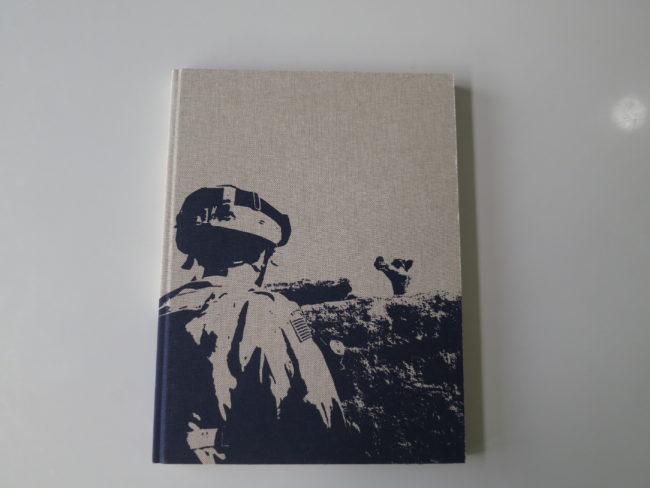
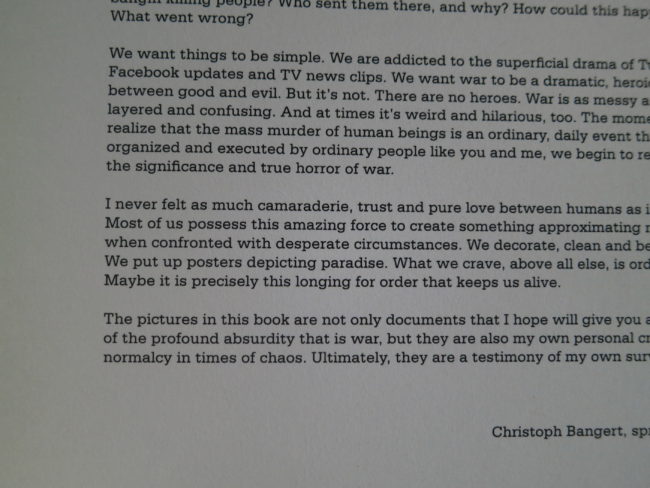
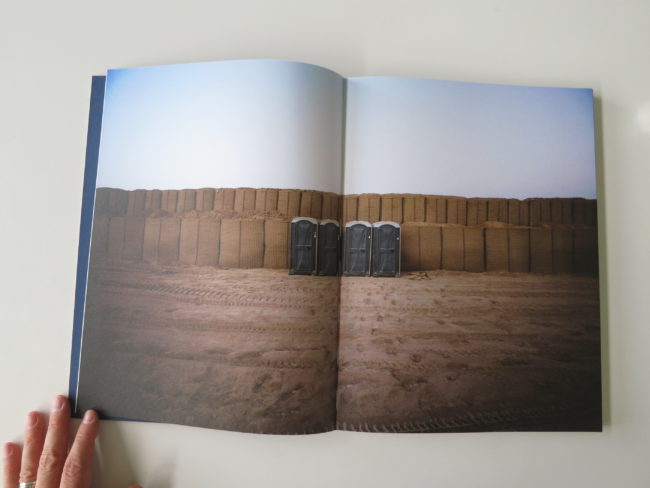
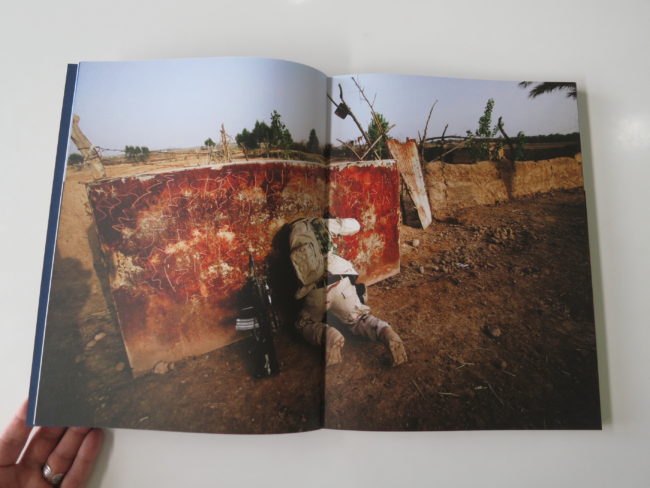
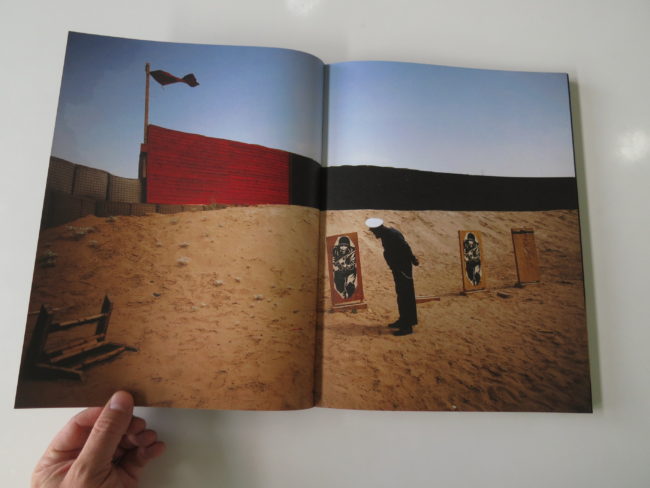
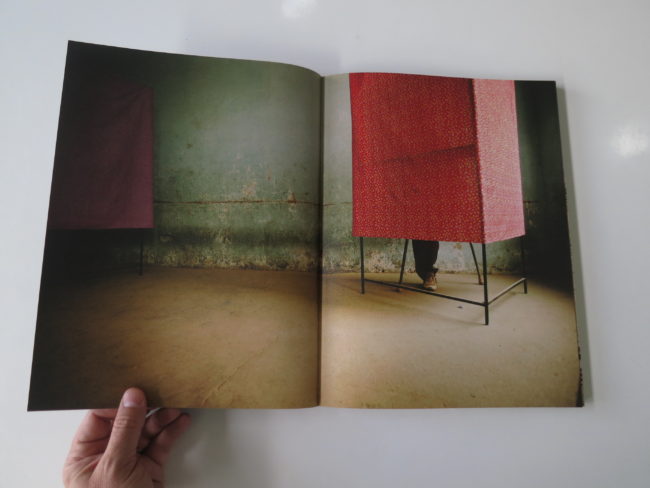
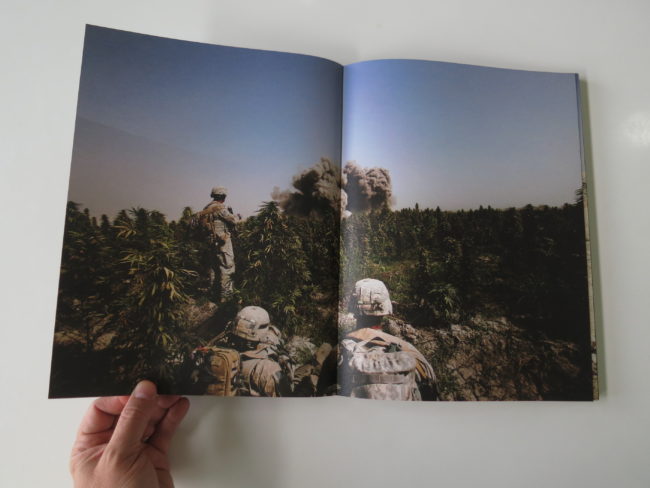
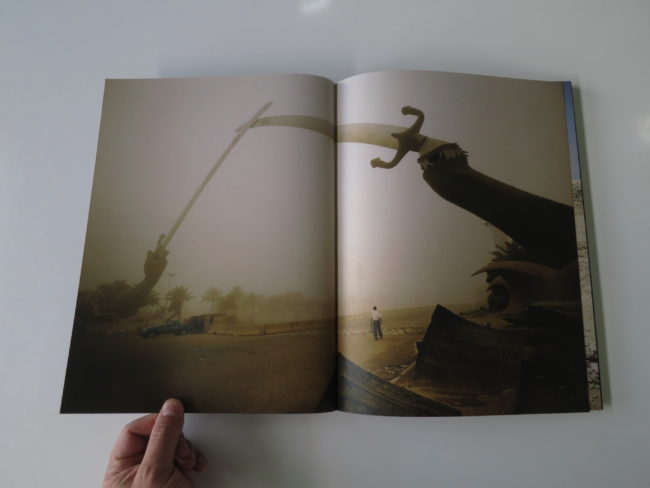
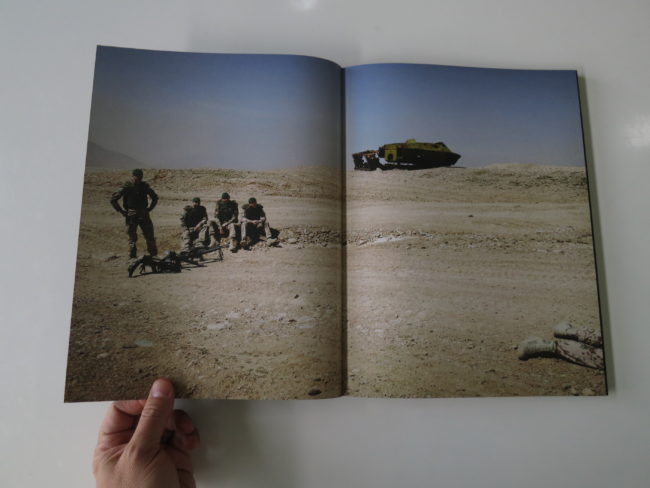
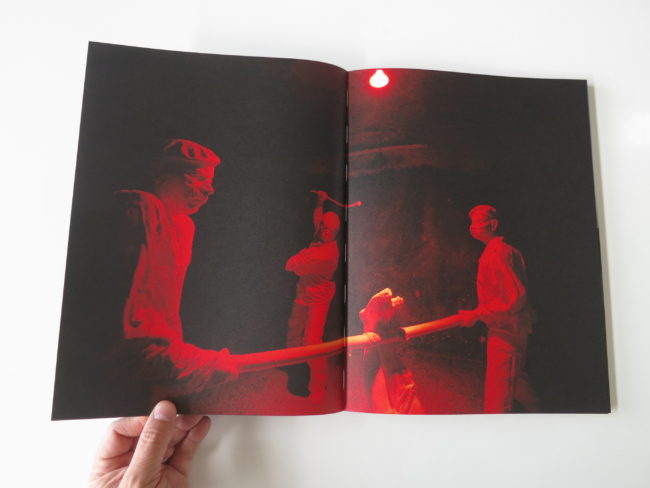
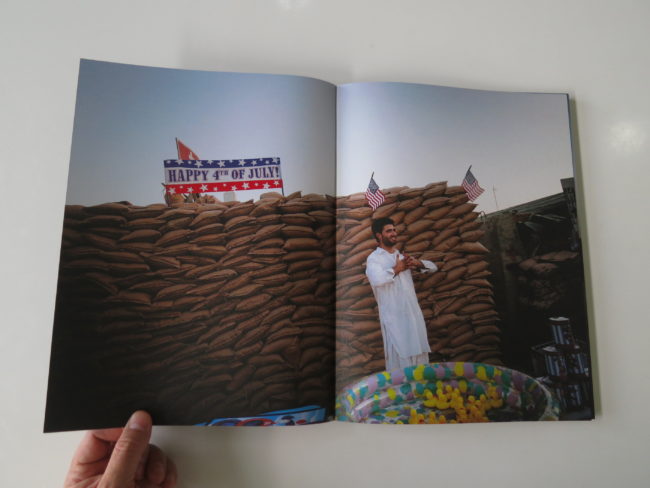
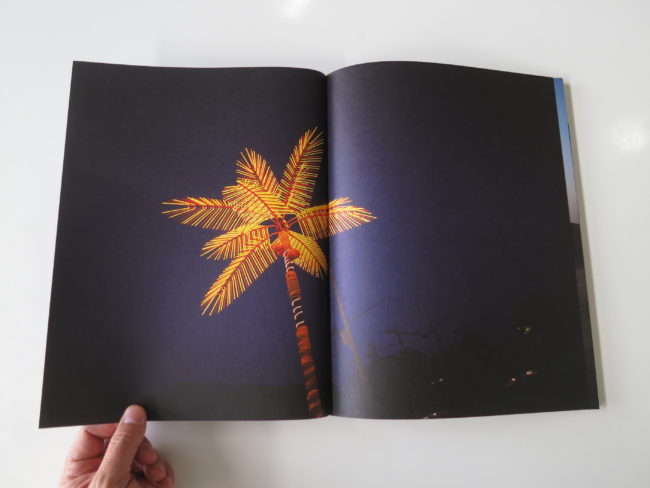
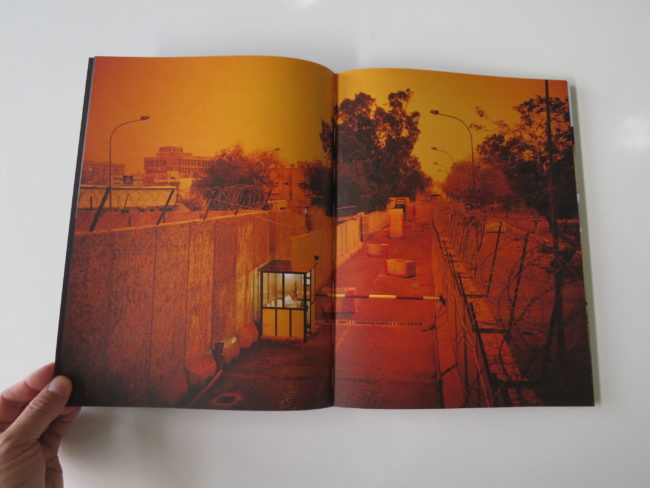
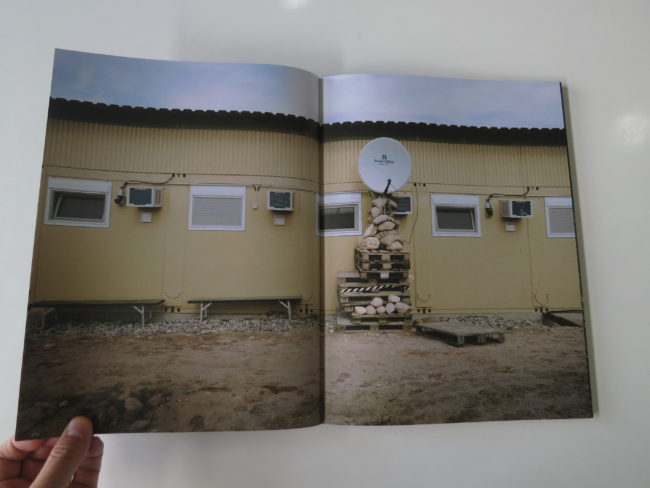
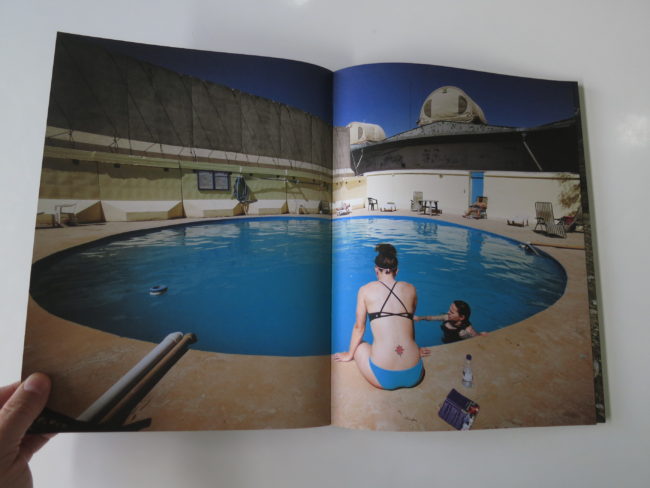
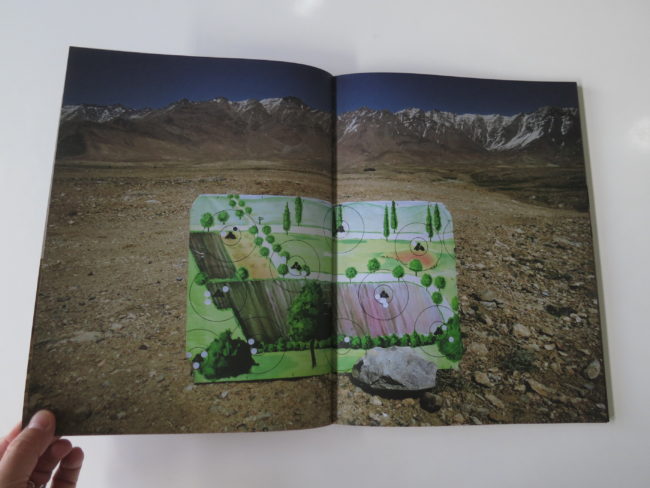
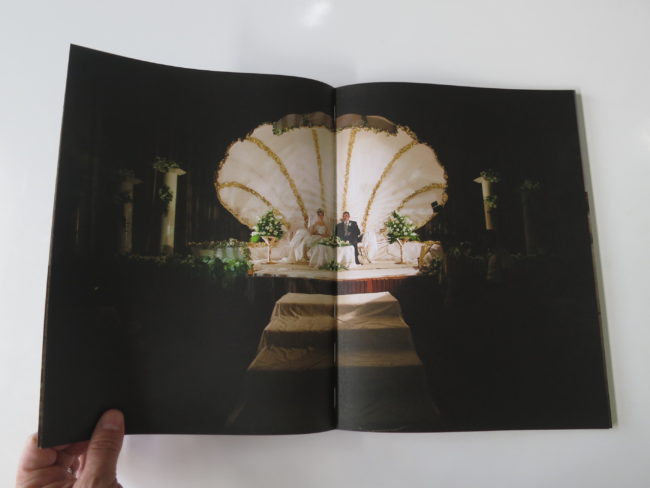
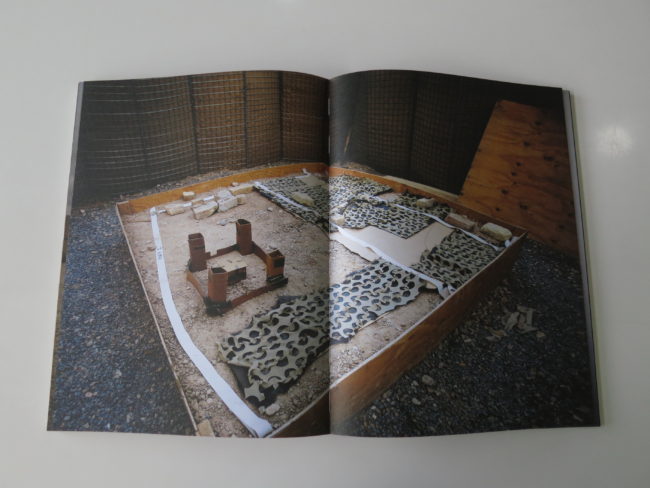
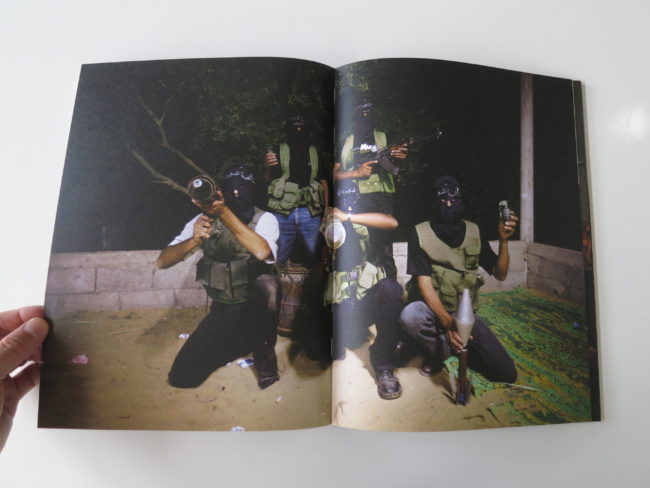
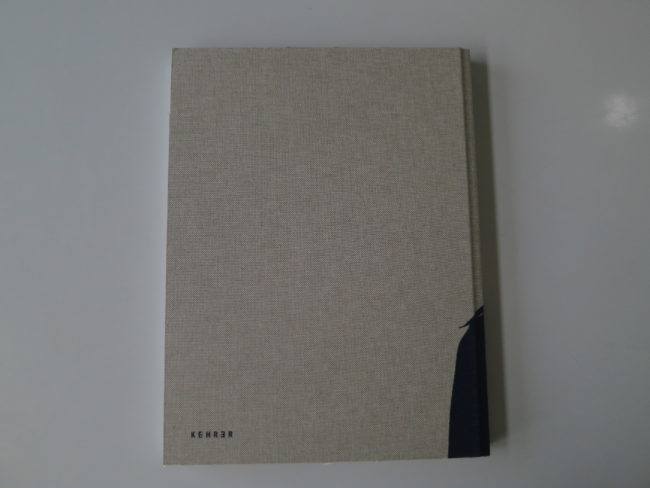
1 Comment
Bangert is an both an agile observer and very capable photographer who’ll give that extra look ’round to get the shots (and viewpoints) many leave behind.
Comments are closed for this article!